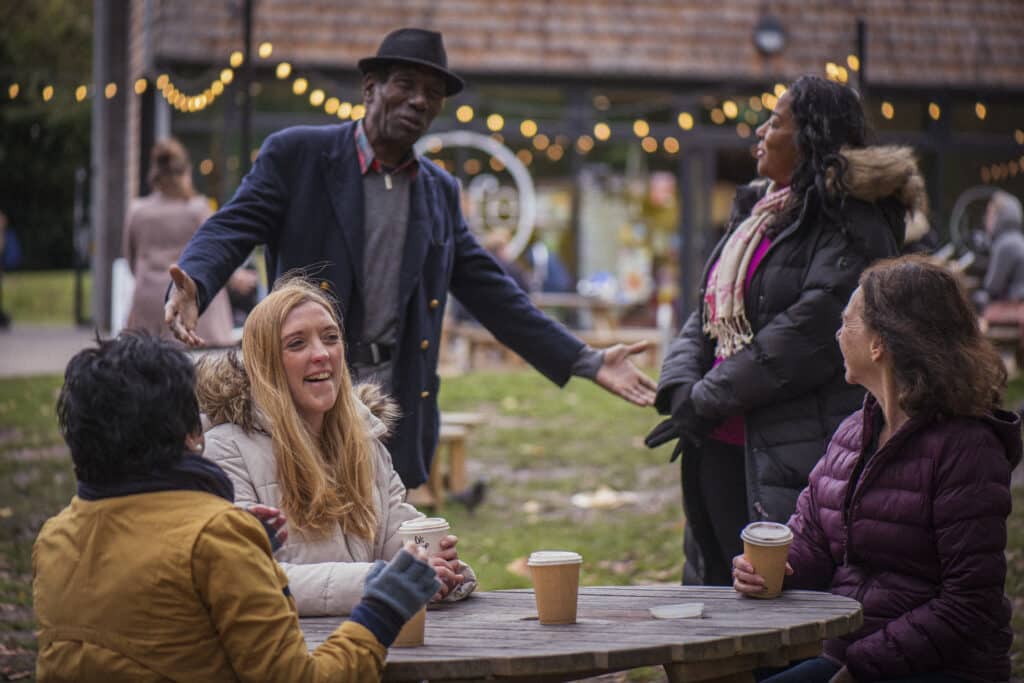Discrimination is something many of us experience throughout our lifetime and it exists in many forms, with the most common examples often related to gender, race and religion. But another form of discrimination plagues our society, and it is one that, while not as outwardly apparent, has significant impacts on the way many of us live our lives, and that is Ageism.
You may have heard the term before, but let’s take a closer look at what exactly Ageism is and how it can affect each of us in our own lives as well as those planning for the elderly.
What is Ageism?
The Ontario Human Rights Commission defines Ageism as two concepts: (1) “a socially constructed way of thinking about older persons based on negative attitudes and stereotypes about ageing” and (2) a “tendency to structure society based on an assumption that everyone is young, thereby failing to respond appropriately to the real needs of older persons.”
It is worth noting that Ageism can also refer to negative attitudes towards younger people; for example, stereotyping that “all teenagers are delinquent trouble-makers”. But it tends to become more prevalent as one enters the later stages of their ageing journey.
While in the context of this article Ageism is the broad term used for discriminatory attitudes and policies towards elderly individuals, the concept can be further broken down into three sub-types:
- Institutional Ageism, which is when an institution adopts and perpetuates age-based discrimination through its policies and actions, leaving those discriminated against with a lack of opportunities and at a disadvantage. Example: a healthcare provider who dismisses a treatable ailment as just a characteristic of old age.
- Interpersonal Ageism, which is when age-based discrimination occurs within the context of social interactions between two or more people. Example: someone oversimplifying their language when speaking to an elder.
- Internalized Ageism, which is when an individual internalizes ageist beliefs and attitudes and applies them to themselves. Example: believing that you are “too old” to learn something new.
What are the impacts of Ageism?
Unfortunately, the negative impacts of Ageism are deep and far-reaching, with those experiencing ageist discrimination suffering consequences to both their physical and mental health.
The effects of Ageism on the elderly include:
- Premature retirement
- Accelerated cognitive impairment
- Increased incidences of violence and abuse
- Increased social isolation and feelings of loneliness
- Worse mental health outcomes
- Less access to medical treatment and lower quality of treatment
- Adoption of risky health-related behaviours, including unhealthy eating habits, drinking excessively, not taking medications as prescribed
- Poorer sexual health, including increased rates of sexually transmitted diseases
These negative outcomes affect both individuals and their families, as well as society as a whole, including the economy. This is why it is imperative that we continue to work hard to dismantle ageist policies and unlearn the ageist beliefs and stereotypes that are ingrained in us throughout our lives. Remember, we all have a significant and worthy part to play in our relationship to ourselves, to our loved ones and to our community, at all stages of life.
What can be done to combat Ageism?
Because Ageism is reflected in our institutions, our social groups as well as in individuals, fighting the perpetuation of ageist beliefs requires we tackle it both from a policy and a personal perspective.
The first step is always awareness and education. The more institutions and the public are aware of and understand the ageist biases that exist within their policies and perspectives, the more they can shift away from those mindsets and effect better change in their communities. For example, key institutions calling themselves and their members to action and denouncing Ageism is an excellent step in shifting attitudes. The American Psychological Association has instituted its own “Resolution on Ageism”, recognizing where Ageism exists and how it affects individuals and society as a whole and what can be done to fight against it.
From there, policies and protections can be enacted to ensure elders are appropriately represented, heard and respected in all aspects of society, including in healthcare, media, the economy, etc.
Where do you and Silver Sherpa fit into all this?
Ensuring there are plans and supports for elders to live throughout their ageing journey with the utmost autonomy, purpose and dignity is why Silver Sherpa and our programs focused on Elder Management exist.
Clients can rest assured that with the help of Silver Sherpa’s planning and coordination services and our Smart Ageing program, they can live out their ageing journey their way and on their own terms.
As social activist and actress Jane Fonda explains, ageing is not the “arch” model we’ve been told to believe, where we rise and peak until mid-life, only to enter into decline; rather, ageing is a “staircase”. As we age, we ascend to higher levels of knowledge, attaining wholeness in mind and spirit, even if our bodies look and feel a little different than they used to.
Setting yourself, a loved one, or a client up for personal, financial, and legal stability in their elder years through careful and thoughtful planning is how we ensure a life continues to be one that is well-lived. Doing this is not just beneficial at an individual level, but at a community and social level as well.
Elders are an important part of the social and economic framework in which we all live. MIT Agelab founder and director Joseph Coughlin explains that technology’s ability to further extend our lives has changed the old narrative that we are expected to retire and “hold back from life” and “[not] do certain things”. Instead, we need to recognize that that’s not the true shape our lives take when we reach the later stages of our ageing journey.
Coughlin argues for the longevity economy, that we should be using the knowledge and talent that our elders have and use that to innovate technologies and create products and systems that go beyond just ensuring elderly individuals can obtain assistance in a health emergency. There’s a huge market for innovations that can enhance and link all aspects of our lives as we age – social, health, financial, spiritual and beyond – that we are overlooking.
So let’s do what we can, together, to continue to fight the stigmas of Ageism and work to ensure that our life’s “third act” is our best one yet!
Contact Silver Sherpa today to book a free and confidential consultation to learn more about our Elder Management services and how we can help you, a loved one, or a client plan for their future.



